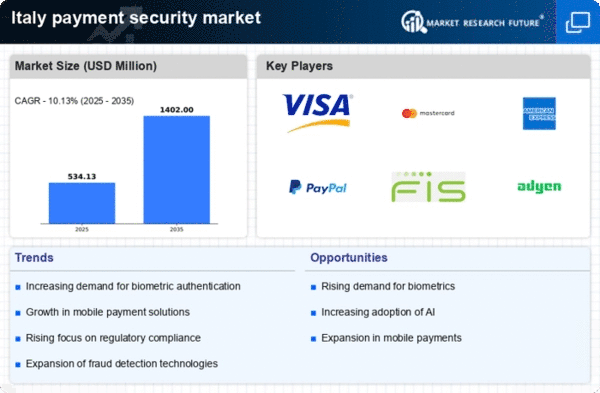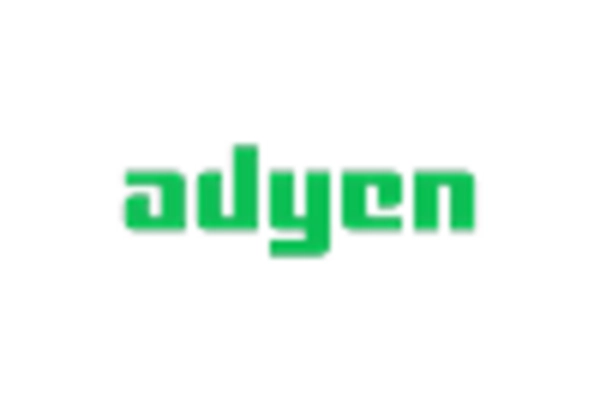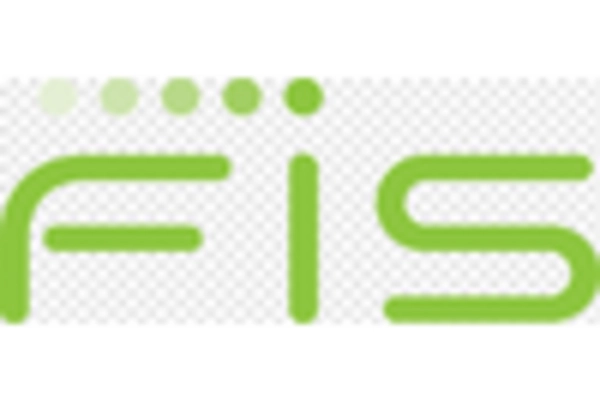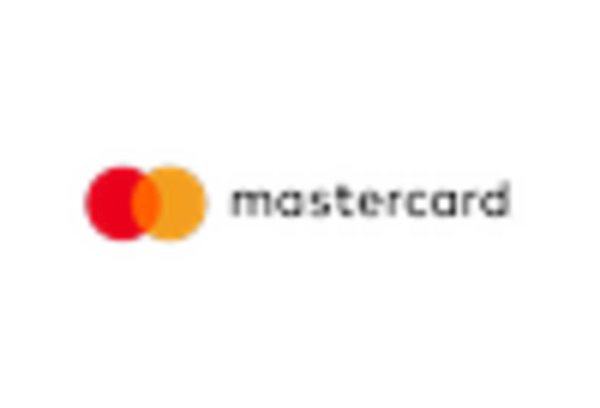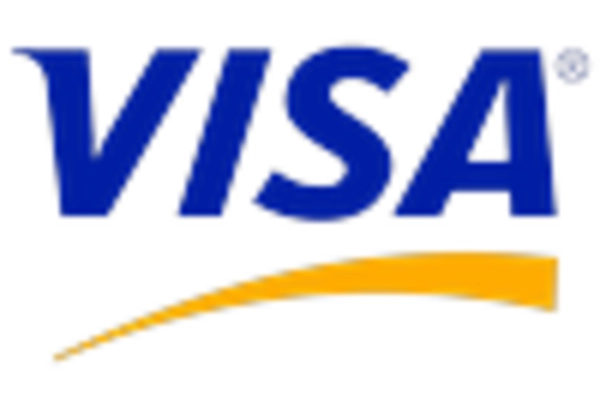Evolving Cyber Threat Landscape
The evolving cyber threat landscape poses a significant challenge for the payment security market in Italy. With cybercriminals employing increasingly sophisticated tactics, businesses must remain vigilant to protect against potential breaches. Reports indicate that cyberattacks targeting financial institutions have surged by 30% in the past year, highlighting the urgent need for enhanced security measures. As a result, organizations are prioritizing investments in advanced security solutions, such as encryption and multi-factor authentication, to mitigate risks. This heightened awareness of cyber threats is likely to drive growth in the payment security market as companies strive to fortify their defenses against malicious activities.
Consumer Awareness and Education
Consumer awareness regarding payment security is a crucial driver for the payment security market in Italy. As individuals become more informed about the risks associated with online transactions, they demand higher levels of security from service providers. Surveys indicate that approximately 65% of Italian consumers consider security features when choosing payment methods. This growing awareness compels businesses to enhance their security protocols and communicate these measures effectively to customers. Consequently, the payment security market is expected to expand as organizations invest in user-friendly security solutions that address consumer concerns and foster trust in digital transactions.
Increasing Digital Payment Adoption
The surge in digital payment adoption in Italy is a pivotal driver for the payment security market. As consumers increasingly favor online transactions, the demand for secure payment solutions intensifies. In 2025, it is estimated that over 70% of transactions in Italy will be conducted digitally, necessitating robust security measures to protect sensitive information. This shift not only enhances convenience but also raises concerns regarding data breaches and fraud, compelling businesses to invest in advanced security technologies. Consequently, the payment security market is likely to experience substantial growth as organizations seek to safeguard customer data and maintain trust in digital payment systems.
Regulatory Pressures and Compliance Requirements
Regulatory pressures and compliance requirements are driving the payment security market in Italy. The introduction of stringent regulations, such as the General Data Protection Regulation (GDPR), mandates that businesses implement robust security measures to protect consumer data. Non-compliance can result in hefty fines, prompting organizations to prioritize payment security. In 2025, it is projected that compliance-related investments will account for over 40% of total spending in the payment security market. This regulatory environment compels businesses to adopt comprehensive security strategies, thereby fostering growth in the payment security market as they strive to meet legal obligations and protect customer information.
Technological Advancements in Security Solutions
Technological advancements in security solutions are reshaping the payment security market in Italy. Innovations such as blockchain technology and artificial intelligence are being integrated into payment systems to enhance security and efficiency. For instance, the implementation of blockchain can provide a decentralized and tamper-proof method for transaction verification, significantly reducing fraud risks. As businesses seek to leverage these technologies, the payment security market is likely to witness increased investment in cutting-edge solutions. This trend not only addresses current security challenges but also positions organizations to adapt to future threats in an ever-evolving digital landscape.


